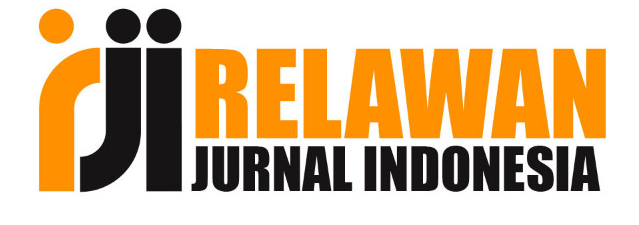THE CORRELATION BETWEEN STUDENTS PERCEPTION AND ACADEMIC PERFORMANCE TOWARDS ONLINE LEARNING SYSTEM DURING COVID-19 PANDEMIC
DOI:
https://doi.org/10.36982/jge.v10i2.2500Keywords:
COVID-19, perception, academic performance, online learningAbstract
Online learning is a system based on formal teaching with the help of electronic devices and used internet connection to facilitates more flexible distance learning and a vast network to connect. Online learning has been carried out in universities in the last two years due to the COVID-19 pandemic. This study aims to determine the correlation between students' perceptions and academic performance towards the online learning system during the COVID-19 pandemic of English education study program students at Indo Global Mandiri University Palembang. quantitative method used in this study with a correlational design to analyze the data. The sample was students majoring in English Education intake 2018, 2019, and 2020. Seventy-eight students from three intakes of English Education students participated in this study. The data sources used by the researchers are graphs of student academic performance and a questionnaire. This research shows that student's academic performance is not much impacted by their perception of online learning. Based on Malik and Singh (2016) Academic performance can be influenced by internal and external factors, such as; Motivation, Economics, Social, and Family. Therefore, students, lecturers, and educational institutions must synergize in improving services, communication, and online-based education systems to benefit more from online learning systems.References
Aparicio,Manuela & Bação, Fernando & Oliveira, Tiago. (2016). An e-Learning Theoretical Framework. Journal of Educational Technology Systems. 19. 292-307
Alam, Zainab & Waqar, Aqil & Zaman, Khalid & Shehzadi, Beenish & Mehmood, Yasir. (2012). Perception of Students towards Distance Learning: A Case Study of Pakistan. Journal of American Science. http://www.jofamericanscience.org/journals. 509-517
Akrim, A., & Sulasmi, E. (2020). Talent Development & Excellence Student Perception of Cyberbullying in Social Media. 12(1), 322–333.
Dikbas Torun, E. (2020). Online Distance Learning in Higher Education: Elearning Readiness as a Predictor of Academic Achievement. Open Praxis, 12(2), 191.
Firat, M., Öztürk, A., Güneş, İ., Çolak, E., Beyaz, M., & Büyük, K. (2019). How
E-learning Engagement Time Affects Academic Achievement In Elearning Environments. A largescale Study of Open and Distance Learners. Open Praxis, 11(2), 129.
Ivancevich, Konopaske dan Matteson. 2006. Perilaku Manajemen dan Organisasi. Jakarta: Erlangga
Kim, H. J., Hong, A. J., & Song, H. D. (2019). The Roles of Academic Engagement and Digital Readiness in Students’ Achievements in University E-learning Environments. International Journal of Educational Technology in Higher
Education, 16(1).
Kumar, S., Agarwal, M., & Agarwal, N. (2021). Defining And Measuring Academic Performance of Hei StudentsA Critical Review. Turkish Journal of Computer and Mathematics Education, 4-5.
Lee, T., & Lee, J. (2006). Quality assurance of web based e-learning for statistical education: Proceedings in Computational Statistics: 17th Symposium, Rome.
Liem, G. A. D., & Tan, S. H. (Eds.). (2019). Asian education miracles: In search of sociocultural and psychological explanations. New York: Routledge
Mandasari, B., & Aminatun, D. (2019). Uncovering Students’ Attitude toward Vlogging Activities in Improving Students’ Speaking Ability. Premise: Journal of English Education, 8(2), 214-225.
Mizener, B. H., & Williams, R. L. (2009). The effects of student choices on academic performance. Journal of Positive Behavior Interventions, 11(2), 110–128. https://doi.org/10.1177/1098300708323372
MartÃ, E. (2003). Representar el mundo externamente. La construcción infantil de los sistemas externos de representación. Madrid: Antonio Machado
Narad, A., & Abdullah, B. (2016). Academic Performance of Senior Secondary School Students. Rupkatha Journal on Interdisciplinary Studies in Humanities, 12-19.
Robbins, S. B., Lauver, K., Le, H., Davis, D., Langley, R., & Carlstrom, A. (2004). Do psychosocial and study skill factors predict college outcomes? A metaanalysis. Psychological Bulletin, 130(2), 261–288
Stern, J. (2018). Introduction to Online Teaching and Learning. International Journal of Science Education, 3, 1–10. https://doi.org/10.1002/9781118784235.eeltv06b
Sugiyono. (2015). Metode Penelitian Kombinasi. Bandung : Alfabeta, h. 192. Suharsimi Arikunto. 2006. Prosedur Penelitian Suatu Pendekatan Praktik. Jakarta: Rineka Cipta, h. 131
Suharsimi Arikunto. 2006. Prosedur Penelitian Suatu pendekatan paraktik. Jakarta: PT Rineka Cipta
Tus, Jhoselle, The Influence of Study Attitudes and Study Habits on the Academic Performance of the Students (2020). IJARW | ISSN (O) - 2582-1008 October 2020 | Vol. 2 Issue. 4 , Available at SSRN: https://ssrn.com/abstract=3717274
Widya, S., Fitriani, D., & Masing, M. (2022). PENGARUH TEMAN SEBAYA TERHADAP ORIENTASI MASA DEPAN SISWA. Satya Widya, 38(1), 2022.
Walgito, Bimo. 2002. Pengantar Psikologi Umum. Yogyakarta: Andi Offset
York, T., Rankin,, S., & Gibson, C. (2015). Defining and Measuring Academic Success. Practical Assessment, Research, and Evaluation, 5.
Downloads
Published
How to Cite
Issue
Section
License
Global Expert: Jurnal Bahasa dan Sastra is published by Universitas Indo Global Mandiri and licensed under a Creative Commons Attribution-ShareAlike 4.0 International License.










